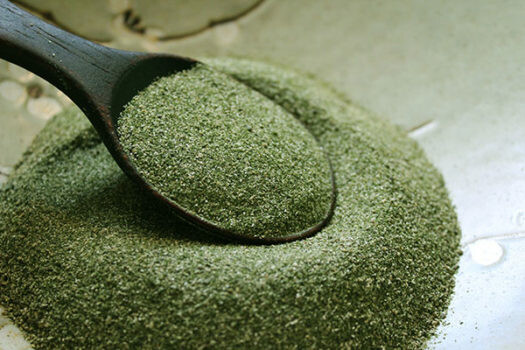
One of the things that I see a lot on hair mineral analysis reports is low hair tissue phosphorous. Phosphorus is an essential mineral that is involved in protein synthesis and energy production within the cell. Phosphorus is found in all protein foods, along with nitrogen and often sulfur. A hair mineral analysis level of phosphorus is often associated with the adequacy of protein synthesis in the body. Phosphorus may be called the excitatory or high-energy mineral because it is also so involved in the human fuel system.
Some functions of phosphorus are bone health, energy production, growth and development of the nervous system and cell membranes, all protein synthesis, buffering the pH of the blood, and maintaining the osmotic balance of the body fluids. So I think you can see that phosphorus is very important to our health. Without sufficient protein synthesis, healing is definitely impaired so correcting the phosphorus level is very important to a person’s vitality, energy level, and tissue regeneration.
Causes Of Low Phosphorus
Besides not eating enough high-quality protein, other problems in the digestive tract or liver that interfere with the absorption or utilization of amino acids can also result in low phosphorous levels. A common one is a chronic candida Albicans infection, for example. Others might be a digestive enzyme deficiency, a low hydrochloric acid level, leaky gut syndrome, an inflamed intestinal tract or an irritated bowel due to a parasitic or other infection. The presence of toxic metals such as too much copper, mercury, or aluminum can also wreak havoc on phosphorous levels as well as a hidden zinc deficiency.
So, as you can see, protein that is more readily assimilated can be very important to our health and healing. This is where bone broth and collagen can help you on your journey to restored health.
Bone Broth
Bone broth is an excellent addition to any diet. It is tasty, inexpensive and simple to prepare, and it adds protein and many minerals and perhaps other nutrients to the body easily. Bone broth is described as bones with or without meat that are simmered on the stove for somewhere between 6 to 36 hours over a very low heat.
The benefits of bone broth are that as you slow cook the bones for a long time, more of the minerals and other nutrients are drawn from the bones and imparted into your broth. You can easily make your own bone broth at home, but there are some good alternatives you may want to consider as well. If you want to purchase bone broth online, I recommend this brand, Bare Bones Broth.
Bone broth helps supply the body with much-needed forms of calcium, magnesium, phosphorus, and many trace minerals. Bone marrow – the jellylike substance at the heart of the bone – is an outstanding source of healthy fats, and it contains iron and vitamin A. In fact, marrow is so nutritionally dense that wild animals will actually break the bones of their prey and eat the marrow first, before even touching the meat!
Bone broth also contains a little protein and some cartilage components such as chondroitin and glucosamine that are found in many animal bones. The calcium that’s present in bone broth is highly bioavailable (that is, easy for your body to absorb) because broth is an optimal vehicle for transporting it along with the other minerals that bone broth contains in larger amounts. This bioavailability means that these nutrients can have a powerful healing effect.
I recommend to clients to have a little bone broth each day, but sometimes that is not possible with our busy schedules. As the weather gets warmer, broth isn’t always something people want on hot summer days. This is where collagen can come in.
Collagen
Collagen is the most abundant protein in the body and is a key component of all connective tissues, but most people do not get enough of it from diet alone. Collagen provides the infrastructure of the musculoskeletal system and is essential for mobility. The intake of collagen ensures the cohesion, elasticity, and regeneration of skin, hair, tendon, cartilage, bones, and joints.
- Collagen (also called gelatin) strengthens your skin, hair, and nails. There’s a reason women have used gelatin for centuries to help keep their skin smooth. The nutrients in gelatin provide you with key building block of collagen – and collagen is like natural Botox, erasing wrinkles and reversing sagging and stretch marks. When the body doesn’t have enough collagen, the skin starts to get thin, wrinkle and sag. Hair gets lifeless or limp, and tendons and ligaments aren’t as elastic as they use to be. Your joints can feel it, too. They can get stiff and “creaky.”
- Collagen fights inflammation. Research shows that even basic chicken soup can help fight inflammation by preventing pro-inflammatory immune cells from moving to an inflamed area. Lowering inflammation also reduces symptoms of autoimmune disorders.
- Collagen heals your gut. Researchers speculate that gelatin stabilizes your gut mucosa by decreasing damage from excess acid or increasing protective mechanisms such as gastric mucosal blood flow. It helps restore the integrity of our intestines, healing a leaky gut and optimizing your immune function.
The breakdown of collagen in bone broths is what produces gelatin, however, if drinking bone broth is not your thing, supplementing with collagen can help boost the levels in the body. Increased collagen intake will support healthy tendons, ligaments, joints, skin and more. Additionally, collagen protein supplements may support better metabolism, boost energy levels and help to maintain healthy muscle tissue.
I recommend two types of collagen from Vital Proteins. The one in the green canister, Vital Proteins Beef Gelatin, gels up when mixed with hot or warm liquids so it may be added to soups, broths or sauces as a natural protein booster and thickener. Healthwise, the gelatin has the advantage of taking slightly longer to digest and coating the small intestine, which is beneficial for gut healing.
The one in the blue canister, Vital Proteins Collagen Peptides, dissolves in hot or cold liquids, so it can be mixed with most anything. You may add it to cold and hot beverages alike, juice, water, tea, as well as a variety of foods like oatmeal to boost the protein content. Both are virtually odorless and tasteless but provide great benefits.
A low phosphorus level may be due to poor digestion, mineral deficiency or poor assimilation of protein. What better way to get started on correcting phosphorus levels and other digestive problems than to incorporate more bone broth and collagen? If you are curious about your phosphorus level, you can schedule a complimentary call and get a hair mineral analysis.












